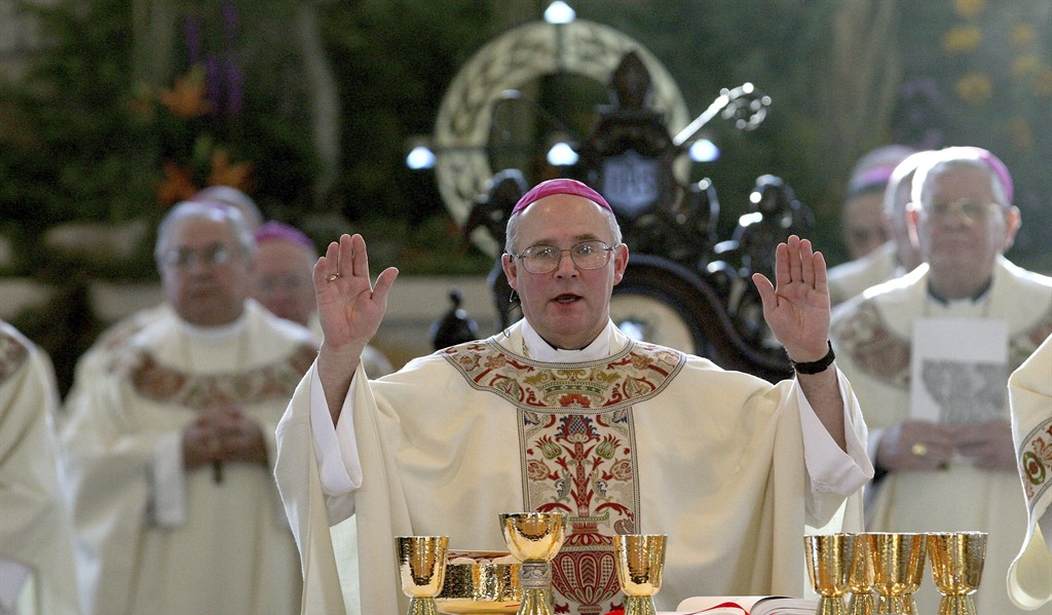If the White House and Republicans on Capitol Hill can work out a tax reform plan, it may unleash churches and other 501(c)(3) organizations into partisan politics. The Washington Post reports that negotiations between both ends of Pennsylvania Avenue include the revocation of the “Johnson amendment,” which — ostensibly, anyway — prevents tax-exempt organizations from endorsing candidates or parties during election cycles:
As Republicans struggle to craft a sweeping tax package — a process already rife with political land mines — they are preparing to add another volatile element to the mix: a provision that would end a six-decade-old ban on churches and other tax-exempt organizations supporting political candidates.
The repeal of the “Johnson amendment” is being written into tax legislation developed in the House of Representatives, according to aides. President Trump has vowed to “totally destroy” the provision at the behest of evangelical Christians who helped elect him.
The inclusion of the repeal in broader tax legislation could bolster its chances. A stand-alone bill would almost certainly face a filibuster in the Senate, where opponents fear the measure would effectively turn churches into super PACS.
Why can’t the Senate just filibuster the overall bill anyway? Thanks to the reconciliation track opened up for tax reform at the beginning of the session, the tax reform package won’t be subject to the filibuster, as long as it reduces the overall deficit. Since repealing the Johnson Amendment isn’t likely to impact revenue — and might be a small cost-saver in terms of enforcement — its addition won’t threaten the bill’s reconciliation status. If Republicans and Trump want to eke this through the Senate, the tax reform package is the platform to use.
Should we want to eke this through, though? Contributions to churches and other 501(c)(3) organizations are tax-deductible in a way that other political contributions aren’t, and churches have much less robust reporting requirements to the IRS on top of that for First Amendment reasons. It’s not too difficult to see where this could lead; “churches” would pop up like weeds after a spring rain to funnel cash for electoral efforts without the oversight in place now. To offer up one hypothetical, would conservatives want to see a thousand “First Church of Clinton” locations open for business between now and 2020, especially given the opacity of the Clinton Foundation’s finances?
That leads to another potential issue, too, one that could backfire on the religious-liberty cause. If this new system resulted in that kind of abuse, pressure would build on the federal government to decide what constitutes a real church as opposed to a political-front operation. That problem doesn’t exist now because the Johnson amendment protects against the need for it, as a practical consequence if not an intentional outcome. Those issues do come up already in granting tax-exempt status (as well as in other contexts on rare occasions, such as drug and prostitution enforcement), but overt political campaigning will add lots of incentive for government to intervene, and that may not depend on who’s in power at the moment.
Once we start down that road, would government remain limited in its ability to “license” churches through tax-exempt status recognition, or would the definitions of legitimate religions depend on their level of political correctness? Which churches will have their current tax-exempt standing stripped from them for falling on the wrong side of an election, or of the dominant culture? As a practicing Catholic I might not have as much to worry about as a congregationalist, but given the attempts to suspend the free exercise of religion by the Little Sisters of the Poor when HHS determined that they were not sufficiently a true religious organization, I’m not terribly sanguine about the long-term viability of religious liberty with this change.
Advocates for repealing the Johnson amendment have argued that the rule stifles free speech, and that enforcement of the current rules have been arbitrary and aimed more at conservatives. That may or may not be true, but a repeal could make matters even worse, as noted above. If we want to protect both free political speech and religious liberty, the better approach would be to completely revamp campaign-finance regulation to eliminate contribution limits and allow funds to flow directly to candidates and parties, with full and immediate disclosure of sources. That would end the attraction of filtering funds and messaging through other organizations, especially churches. Repealing the Johnson amendment doesn’t deal with the real problem of indirect campaigning, and instead will exacerbate it and make it even more opaque — and give government a camel’s nose in the tent of licensing religions that people of faith may long regret.








Join the conversation as a VIP Member